Thirty-Year Struggle: Georgia and Abkhazia's Lost Opportunities for Dialogue
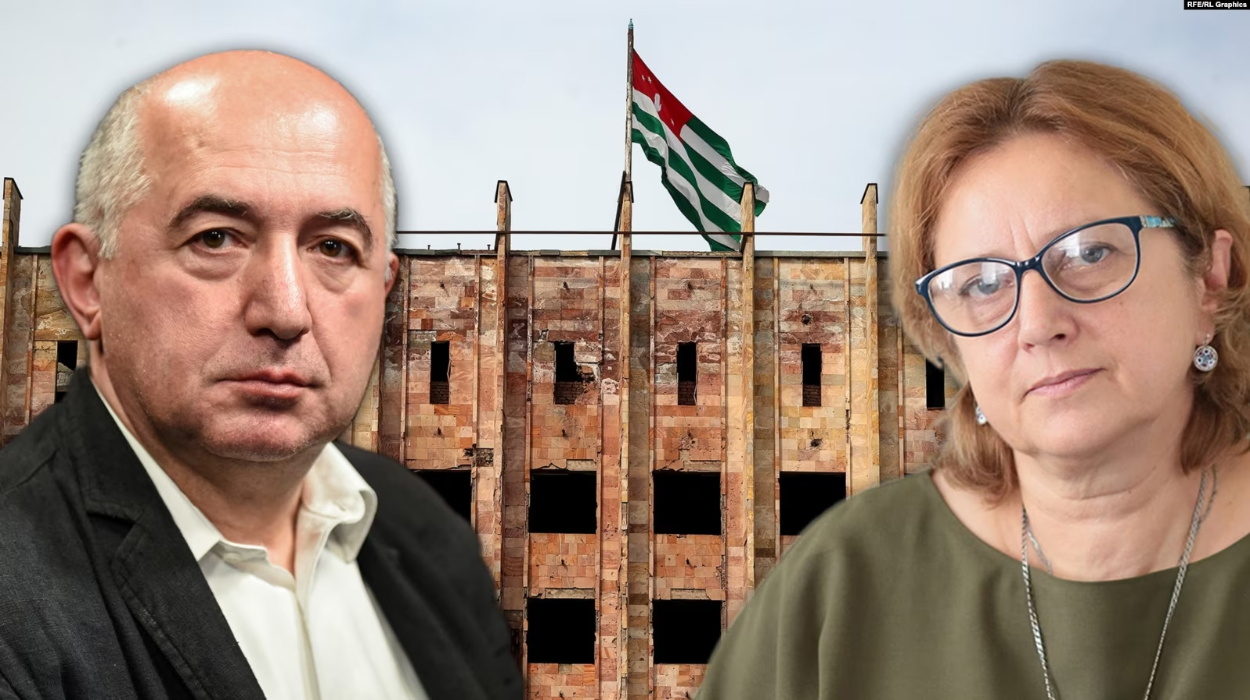
Paata Zakareishvili (left) & Arda Inal-ipa discuss the Georgian-Abkhazian conflict.
Ekho Kavkaza | PRAGUE — In Sukhum/i, it's remembered as the day they took the city, while in Tbilisi, it marks the day of loss. Over the past thirty years, there were moments when the positions of both sides seemed to draw close, but these moments only led to them drifting further apart. Arda Inal-ipa, Director of the Sukhum Humanitarian Programs Center, and Tbilisi-based political scientist Paata Zakareishvili discuss this three-decade history – a history that spans even longer – and the potential for renewed dialogue at the Roundtable.
Question: Anniversaries often bring a sense of reflection. Arda, from your perspective, were there moments or crossroads when this course of events could have been avoided? Were there opportunities to change this narrative?
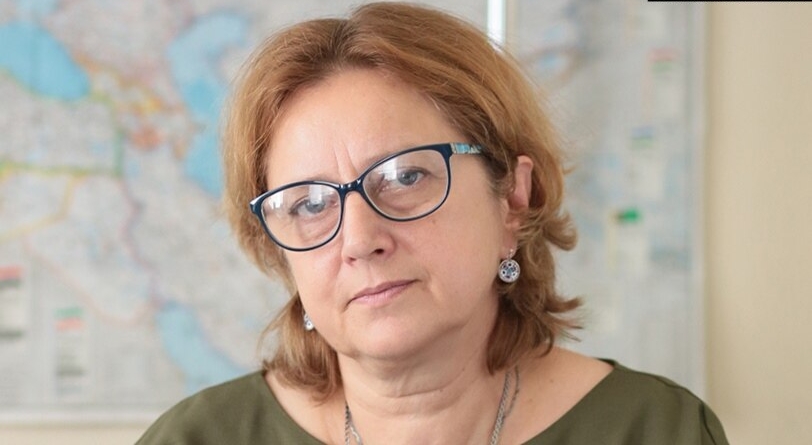
Arda Inal-ipa
Arda Inal-ipa: Although many anticipated the war, there was a prevailing hope that it could be sidestepped. In Abkhazia, there were intense efforts to establish a federal treaty with Georgia. Right before the State Council troops invaded, a plan by Taras Shamba was unveiled. Regrettably, it was never realised. When the parliament – the then Supreme Council of Abkhazia – was constituted, there was significant dialogue between the Georgian political establishment and Abkhazian politicians. An agreement was reached regarding the representation of ethnic Abkhazians and Georgians in the Supreme Council. Even in the face of aggressive propaganda, particularly in emerging newspapers and occasionally on TV, some public figures and politicians managed to convince their peers – and sometimes adversaries – of the importance of dialogue. And indeed, discussions were underway.
14 August 1992, Georgian troops entering Abkhazia with tanks and combat helicopters.
At the grassroots level, there were efforts in which I also participated. I once travelled to Tbilisi and engaged with Zviad Gamsakhurdia's team. The encounter was jarring, leading me to believe there was little common ground with them. But there were others in Abkhazia, particularly within the youth creative association, who advocated and sought dialogue. That is, there were those types of activities that implied a different path. Yes, the difficult path of a difficult conversation, but I think it could have taken place if the situation in Georgia hadn't developed in such a way, where even criminal leaders influenced decision-making, and the carte blanche of (Eduard) Shevardnadze, and so on. But, in principle, I think there was a chance.
– Paata, was there a chance?
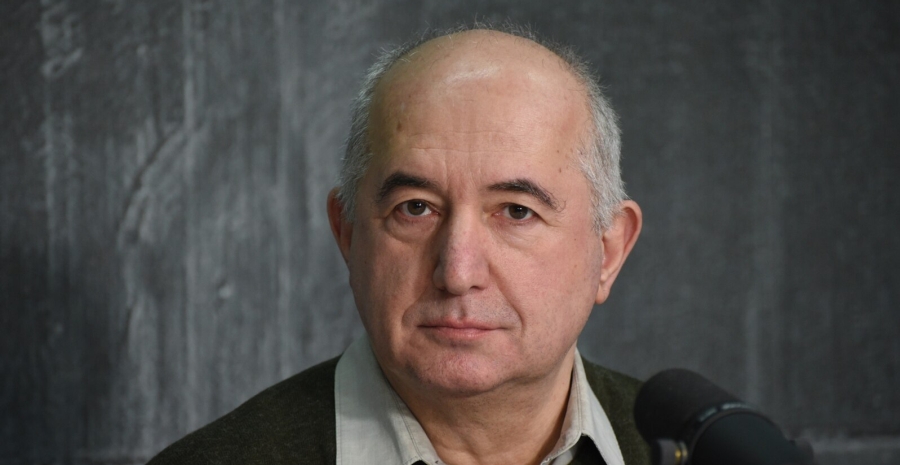
Paata Zakareishvili
Paata Zakareishvili: Absolutely, I firmly believe there was a chance. Today, we commemorate the end of the war. In Abkhazia, they're celebrating; they term it the capture or liberation of Sukhumi. Conversely, in Georgia, it's a period of mourning, recalling it as the fall of Sukhumi. This alone showcases the starkly different narratives we hold. Perhaps this day should be a platform for reflection and dialogue. After all, no party to this conflict truly succeeded. There were three sides: the crumbling Soviet empire, the evolving role of Russia, the aspirations of the Abkhaz community, and Georgia with its own considerations.... 30 years have passed. Russia hasn't achieved making Georgia its satellite; Abkhazia hasn't achieved being recognized as an independent state internationally. Georgia hasn't achieved territorial integrity or full control over the entire territory of what was then Soviet Georgia.
– But by 1994, the chances had not yet been missed...
Paata Zakareishvili: Yes, that's why we need to understand the context. At that time, a civil war was raging in Georgia between the then-illegitimate Shevardnadze and Gamsakhurdia's allies (Gamsakhurdia was in Grozny at that time). Interestingly, by then, Shevardnadze managed to stop the bloody, horrific war in South Ossetia. It was a significant step – this happened in June 1992 – as if he could accomplish something. And then, such a glaring mistake – he sends in troops. If you look at the newspapers from that time, there was hardly any mention of Abkhazia. The discussion was about Zviad Gamsakhurdia, about them kidnapping people, blowing up bridges, halting the railway, and also, there was a war in Karabakh, Armenians couldn't get their supplies, etc. – complete chaos was unfolding. During this period, Zviad Gamsakhurdia's allies often hid in the Gali district – at least, that's the formal discussion – and the State Council meeting, which decided to deploy troops to the territory of the Abkhaz Autonomous Republic – there was no mention of Abkhazia at all. The discussion was about controlling the railway. Everyone participating in the State Council meeting, including people I know well and close friends who later told me all about it, didn't discuss Abkhazia. And once troops, under the leadership of the eccentric (Tengiz) Kitovani, were mobilised, an entirely different scenario emerged...
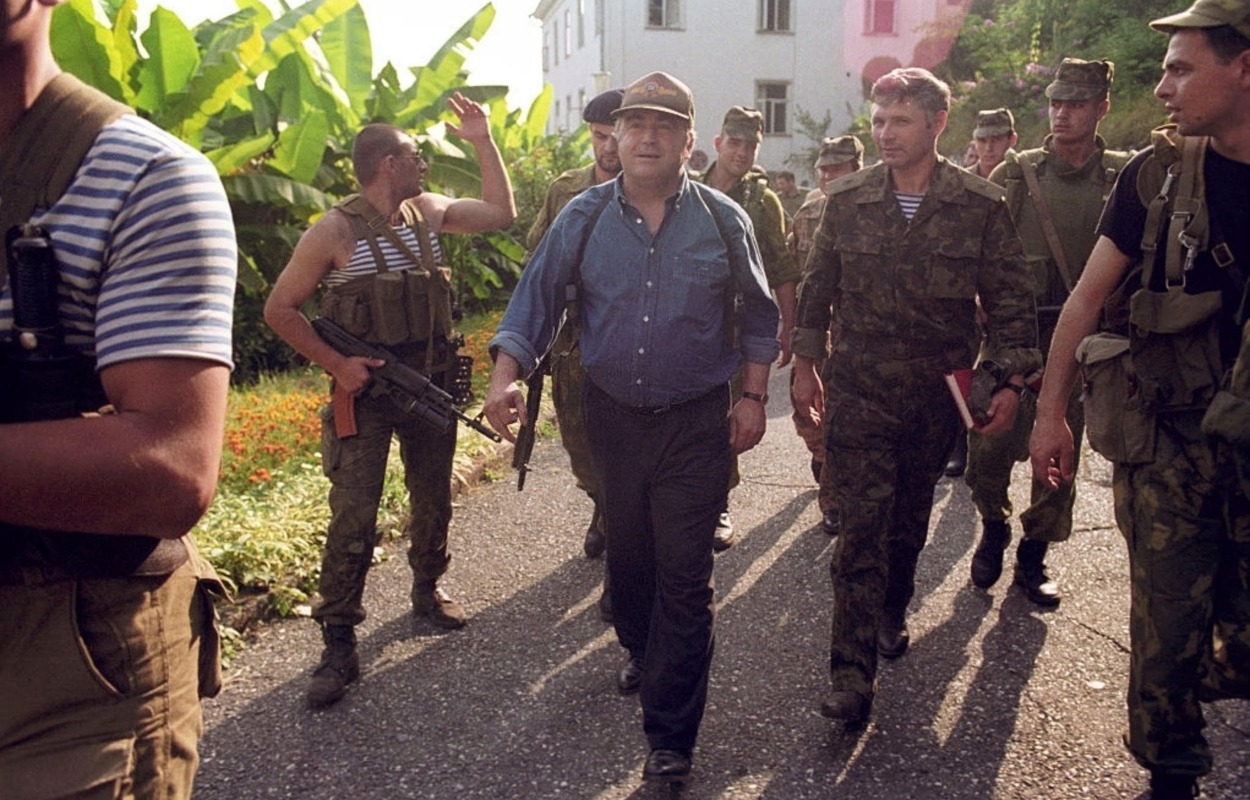
Tengiz Kitovani, Minister of Defence of Georgia in Sukhum, Abkhazia (August 15, 1992).
– But wasn't it already clear that it was a war with Abkhazia?
Paata Zakareishvili: No, it wasn't clear in the newspapers, on television...
– Elaborate on that…
Paata Zakareishvili: To put it plainly, the paratroopers who touched down in Gagra believed they were at a holiday destination. War was the furthest thing from their minds. The gravity of the situation only sank in after Gagra's fall that's when people in Georgia realise that this isn’t a joke and it’s serious.
– Paata, sorry, I will interrupt you because Arda wants to say something.
Arda Inal-ipa: I want to say that it’s a bit deceptive – to think that one couldn't have thought of the war – because in what context did all of this take place? In the context when there was talk of the need to abolish autonomy, that the Abkhazians aren't living on their land, etc. Thus, in this context, this aggression was unequivocally perceived not as a defence of Armenia's economic interests or someone else's – that's simply laughable.
Paata Zakareishvili: It might be laughable to you, but not to us. In fact, it...
Arda Inal-ipa: From the very first day, we naturally perceived it as a war because on the first day they had already advanced...
Paata Zakareishvili: In Abkhazia, yes, it was unequivocally perceived as war...
Arda Inal-ipa: Yes, because military forces were already shooting civilians from helicopters...
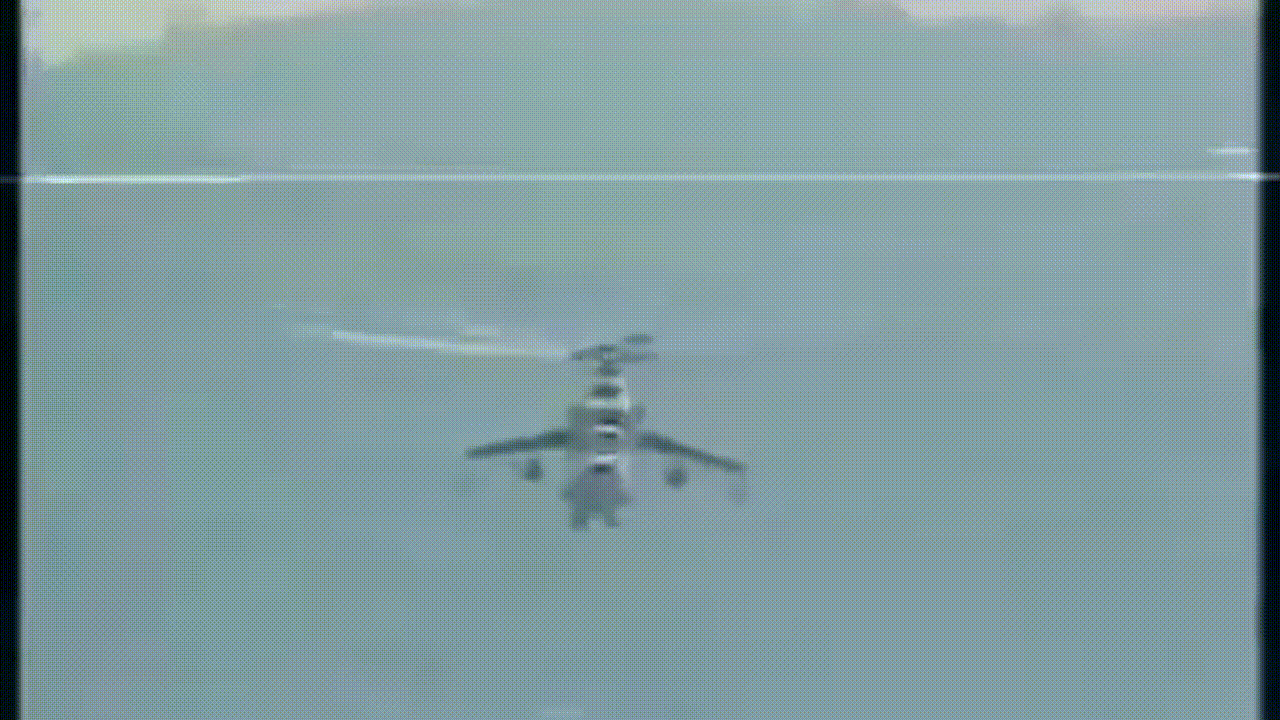
Georgian-Abkhaz Conflict | The first day of the war, August 14, 1992
Paata Zakareishvili: Georgian tourists, for instance, who remained – it was summer after all – they too didn’t feel like it was a war. They would call saying, "Evacuate us, what is this outrage? We are here on vacation, we can't get out." So, no one felt that they were caught in a serious situation; their only concern was to comfortably leave Pitsunda. The sensation of war came gradually. In my opinion, Shevardnadze also got the idea – he suddenly felt that, aha (this is my opinion), the Abkhazian issue can be resolved this way: we accidentally entered Abkhazia because of some Gamsakhurdia affairs, and now maybe something can be settled. I believe that this was Shevardnadze's biggest mistake: not that he sent in troops – that was a huge mistake, a 100% mistake, but an even bigger, thousand-percent mistake that he didn’t withdraw them a week later. He didn’t realise the trap he had fallen into. He didn't understand that this was very serious and would be costly. What he did in 1993, he should have done within a week. Thus, it's a double mistake – a mistake greater than a crime – that Shevardnadze didn't withdraw the troops in time. He too thought it wasn't a war. Everyone thought it would be easily resolved, especially since he had just ended the war in South Ossetia and thought everything would go just as smoothly. It turned out that there was a strong, serious resistance there...
Arda Inal-ipa: Allow me a moment. It wasn't resistance that led to the shooting of vacationers on the beaches of Sukhum from helicopters, it was a deliberate order. This wasn't a result of Abkhazians resisting at the border. Someone explicitly gave that order...
+ Georgian-Abkhaz War | FBIS Reports (Aug-Oct. 1992)
+ “This day was very sad - 14 August 1992, when the war began.”
+ 'Absence of Will' Documentary Film: A commentary
Paata Zakareishvili: I agree, but whose order was it – Kitovani's or Shevardnadze's?
Arda Inal-ipa: Making it through Abkhazia to reach Sukhum in just half a day wasn't a mere coincidence.
Paata Zakareishvili: I'm not being deceptive; I'm speaking honestly because Shevardnadze himself admitted several times that they couldn’t find Kitovani for three days – what was he doing? I don't want to absolve the Georgian side of responsibility; it was an absolute atrocity. But if we want to delve into the details since we’re recalling this today, unlike others who don't know the details, we know them. I allow myself to say: we unexpectedly found ourselves in a war, and we liked the idea that from this accidental gift, something positive might emerge for Georgia.
Arda Inal-ipa: I have a different opinion...
Paata Zakareishvili: I respect you greatly, and your opinion is crucial to me, but I'm also being honest and sincere.
– Arda, let’s revisit the Battle for Sukhum. Some believe Moscow, while caught up in its own uprising events, warned the Abkhazian leadership against taking Sukhum. They might've implied, "It's commendable that you've secured the heights, but capturing the city won't be tolerated." Is there truth to the notion that the move to seize Sukhum was primarily driven by the audacity of one individual?
Arda Inal-ipa: I must clarify that I'm not a military expert, but indeed, those who directly participated in the war over these 13 months concluded that when certain military operations were discussed with some representatives of the Russian military, others found out, and many operations were thwarted. This last offensive was prepared and conducted secretly. There were even broadcasts about this on Abkhazian television; people talked about it, and there was an opinion that Russia indeed tried to maintain the conflict as it was after the 1992 invasion and that perhaps someone wasn't interested in the Abkhazians reclaiming their country, liberating their capital. And yes, there's evidence supporting this narrative.
– Paata, the dominant belief in Georgia is that the country lost to Russia in the war, not Abkhazia. However, given our discussion with Arda and the subsequent events, it seems the dynamics between Moscow and Sukhumi weren't straightforward. Why didn't Georgia capitalise on this at the time? And how valid is the assertion that Georgia's loss was more to Russia than Abkhazia?
Paata Zakareishvili: I was engaged in human rights and humanitarian issues during the war. I can confidently say that 90% of the deceased Abkhazians and captives I worked with were ethnic Abkhazians. In other words, Abkhazians fought and shed their blood. To claim that Abkhazians did not fight is absurd to me. There were very few Russians who fought directly. Maybe they helped in artillery; Russian planes flew – that was clear. One can't forget the incident where a downed plane was identified as Russian, an incident even Shevardnadze highlighted. The war saw the engagement of three distinct parties, with Russia playing a pivotal role. The fact that, for instance, as soon as the war begins, Georgian armed forces easily occupy Sukhumi, pass Sukhumi, pass Gumista, go up to the New Athos mountain – and then suddenly there's a call from (Boris) Yeltsin to Shevardnadze saying, "no further, take a step back." Georgian troops move down and occupy the approaches to Sukhumi. So it's unequivocal that Russia was involved. Because at some point, it was Yeltsin who called Shevardnadze – when there was already a threat to New Athos and possibly Gudauta as well.
Indeed, it would have been a terrible situation for Abkhazia because the ethnic Abkhazians who left Sukhumi had all gathered in Gudauta. It's undeniable that Russia was present from the outset, with its generals and officers keeping a close watch. I'd argue that the conflict was tripartite in nature: one-third Abkhazian, one-third Georgian, and one-third Russian. Early agreements, such as the September 3rd accord in Moscow, were strict about troop withdrawal, which eventually led to Gagra's fall. By the final agreement on July 27th, 1993, Georgian forces were entirely disarmed.
+ Tengiz Kitovani: "they [Russians] officially gave us the 108 tanks of the Akhaltsikhe Division"
+ Russian Officer Views Abkhaz Conflict (27 April 1993) | FBIS Report
+ Paata Zakareishvili: The story of Georgians' heads being used to play football in Gagra is a myth
To claim that Russia had no hand in the conflict, suggesting it was purely a Georgian-Abkhazian matter, is as misguided as viewing it solely through a Georgian-Russian lens. The reality was multifaceted. In Russia, there were two forces, there was (Ruslan) Khasbulatov... Look: Georgia lost Sukhumi on September 27th, and merely a week later, Yeltsin took action against the White House – two Russias are at war...
In Georgia, there are two forces – Zviad Gamsakhurdia and Shevardnadze. Zviad Gamsakhurdia returns immediately as soon as the agreement is signed. Two Georgias (Gamsakhurdia-Shevardnadze) are fighting each other and looking for fish in muddy waters in Abkhazia, two forces in Russia – Khasbulatov and Yeltsin are also fishing in the murky waters of Abkhazia, and there's only one side – Abkhazia – which quite skillfully, I would say, plays between these four sides, juggles, and manipulates, in a good sense of the word. They achieved something then, but looking at it today – is what they achieved really what they wanted? Therefore, it's a very complex situation, and one needs to delve into the details. For Georgians, it's a Georgian-Russian war, but for me, that's an absolutely unacceptable formulation.
Arda Inal-ipa: I agree that multiple entities played roles in the war, but it's an oversimplification to assign them equal weight. Russia's involvement was multifarious, not just limited to one or two major factions. Key events, such as the Tashkent Agreements, which transitioned the arms of the Transcaucasian Military District to Georgia, or the Dagomys conspiracy that emboldened Shevardnadze against Abkhazia, shed light on the depth of these dynamics. So from the Abkhazian point of view, we cannot say that Abkhazia was unequivocally supported. There were individual generals, and indeed, someone from the Caucasus – there was help from there, but Russia's position was very ambiguous. And from the Abkhazian perspective, when we received no weapons, we understood that Russia was not on our side.
– Arda, it's intriguing how history aligns. Precisely on the anniversary of the Abkhazian war's commencement, Azerbaijan launched a decisive operation in Karabakh. How does Abkhazia interpret such historical parallels? Despite 30 years passing, the Abkhazian conflict remains unresolved. Yet, we observe instances where military resolutions seem effective and successful.
Arda Inal-ipa: You know, there's a sentiment among some that the conflict has been resolved. However, this seems more of wishful thinking than reality. Of course, most people watch with great concern as conflicts are reignited. In this sense, we would certainly wish the Georgian-Abkhazian conflict to present a different pattern. After all, the dialogue has not ceased, one could say, since 1994-95 (initially it was an official and civilian dialogue), and this is the factor that distinguishes the Georgian-Abkhazian conflict from the Armenian-Azerbaijani one, where such initiatives were challenging and not supported by either side. I think there were missed opportunities because there were very interesting initiatives – like the Schlaining process, where the idea of the Agreement on the Non-Resumption of Hostilities emerged, (Irakli) Alasania and (Sergey) Shamba conducted this dialogue for a long time, and were on the verge of signing it. I think signing it would have transformed the process. I believe that, unfortunately, when (Mikheil) Saakashvili came to power, he had a different view; he decided he could use the escalating conflict between Russia and the West to Georgia's advantage, substituting – what Paata speaks of, by declaring Russia a party to the conflict and removing this status from Abkhazia. He thought it would be easier to solve the issue this way. I believe that then the development took a different turn, depriving us of many opportunities.
+ Thirty Years' War. How the Georgian-Abkhazian war changed history, and history changed the war (Interview with Arda Inal-ipa & Zakareishvili
+ Stanislav Lakoba: "If Yeltsin had been opposed, the war in Abkhazia would not have started"
+ Beslan Kobakhia: ‘This war should be ended by those who started it’
Does what happened in Karabakh change any views on the approaches in Abkhazia – even the theoretical possibility of a military solution?
Arda Inal-ipa: The theoretical possibility, I think, always exists, especially since it is practically being implemented not far away. Of course, there are fears, and many are closely monitoring the development of Georgia's defensive and offensive military capabilities, hence the high hopes for support from a strategic partner. So, it's not ruled out. But I believe our society has not lost hope that there's another way.
– Paata, I'm not even going to ask about the temptation Georgia must surely feel looking at the Karabakh conflict. Let me ask it differently: in Azerbaijan, the possibility of a military solution was seen in a purely theoretical light for a long time. Is there any way or situation in which the theoretical could turn into the practical for the Georgian-Abkhazian conflict?
Paata Zakareishvili: For the last 6-7 years, Baku has never had any illusions; they kept saying: if the seven districts around Karabakh are not returned, there will be war. As for Georgia... Of course, theoretically, anything is possible. Indeed, there are people who think of revenge, that now is our time. Yes, to be honest, there is such a sentiment, especially among those who are fighting in Ukraine today, and they somehow feel a certain adrenaline, and I cannot 100% rule this out. But the current Georgian authorities clearly, and it's palpable, aren’t planning any such action... And the opposition also tries to be correct and not to amplify this sentiment because it's an unacceptable position for society. Hence the myth works well that someone wants us to open a second front – precisely because it's unpopular among the public.
So at this stage, the way forward should be as follows: we've seen in Karabakh how Russia operates, and my position greatly differs from the positions of my friends in Abkhazia, whom I deeply love and respect. The first difference is that, as long as Russia is in the Caucasus, nothing good will happen; there will be no peace. Therefore, Georgia should be involved in the European movement that demands Russia leave all territories it occupies illegally. The European Union needs to be engaged. Between us and the Abkhazians, there should be peacekeeping forces from the European Union. They are already in Armenia, along the border with Azerbaijan (EU Monitoring Mission – EC). So, in my view, in one statement, not separated by a comma but by a period, we should say: remove Russia, strengthen the European Union, and then create a sense of security for our Abkhazian friends and the Abkhazian society. Where Russia is present, there is no guaranteed security for anyone.
– What about the thesis on the occupation of Abkhazia and South Ossetia, which is considered indisputable in Georgia – is there any ambiguity here? After all, many perceive this situation as if once Russia weakens and leaves Abkhazia, the Abkhazians will raise the Georgian flag and return on their own...
Paata Zakareishvili: That's absurd. I don't believe...
– So, the term "occupation" insinuates such an aftermath. Does the label not persist even if the "occupation" ends? How detrimental is it to dub Russia's involvement in Abkhazia as an "occupation" for constructive discourse?
Arda Inal-ipa: I think it's very harmful, because, firstly, it doesn't correspond to reality. Despite all the peculiarities, the presence of a military base, Abkhazia is not an occupied country. This is evident, at least by how many complex moments arise in Abkhazian-Russian relations, unfortunately. As for what Paata said about the need to involve other organisations – I, for example, believe that the departure of the UN is deeply regrettable. I think that if the UN Mission had continued in the Georgian-Abkhazian conflict zone, it would have – yes, slowly, but surely – led to a constructive, positive development of events. Unfortunately, all this is related to Abkhazia losing the status of a party to the conflict, and I think it's essential to restore this status so that Abkhazia can participate in full-fledged negotiations. We have things to discuss. I see such potential; it could be an example of the development of very complex relationships, not like in places where conflicts are unfrozen through war, tragedy, and more killings and deaths. So, I think these missed opportunities, like signing the Agreement on the non-resumption of hostilities, and rejecting the thesis of occupied territories – create a platform for dialogue, which, I believe, both Georgia and Abkhazia need.
+ Reflections on Abkhazia: 1992-2022
+ The Blockade of Abkhazia
+ Several Observations Related to the Perception of the Georgian-Abkhazian Conflict, by Liana Kvarchelia
– Paata, do you agree with this?
Paata Zakareishvili: Yes, I practically agree with everything. All these topics that Arda just listed - each of them is unique; each could have its own separate show: how the UN left, how the OSCE left, why an agreement on the non-resumption of hostilities isn't signed, and so on. Because everywhere you can see Russia's hand... The OSCE left South Ossetia because Russia did everything for that, and the UN left Abkhazia because Russia did everything for that. When I was a state minister, I always said that Abkhazia is a party to the conflict – not just the conflict but also a party in the negotiation process. I believe that until we sit down directly with the Abkhazian side and hold Tbilisi-Sukhumi negotiations, nothing significant will happen because Russia is everywhere. We must find common ground with Sukhumi without Russia. As for the occupation... According to international law, it is, of course, an occupation: Russian troops are in a territory considered by international law to be Georgia. But that's just part of the problem. I don't often use the word "occupation." Speculating and juggling with such topics only complicates our discussions. If we want to achieve something, we need to free ourselves from the terms that hinder the conversation. But by international law, it's undeniably and clearly an occupation, and I have no doubts about that. However, whether we need to talk about it constantly is another question.
Arda Inal-ipa: Russia undeniably holds a substantial stake in the South Caucasus. But Paata, your stance seems to converge with those you typically contest. Your narrative seems to omit Georgia's role in this conflict. It appears as though Georgia was merely a passive observer, with no agency or influence over its course. While Abkhazia had its missed opportunities, my point stands: your emphasis is on Russia, suggesting that Georgia can't shoulder any blame...
Paata Zakareishvili: I must clarify. You mentioned the exit of the UN and OSCE; I countered that Russia was instrumental in that decision. Georgia lacked the clout to either eject or retain the UN. Russia, with its seat on the UN Security Council, held that sway. While this remains a topic of debate, if my words seem to imply an over-reliance on Russia or a dismissive attitude towards Georgia's role, that wasn't my intention. Engaging with Sukhumi weakens Russia's stronghold, whereas our reluctance to do so bolsters their position. Moscow currently represents Sukhumi in dialogues, a dynamic we need to disrupt. We can dilute Russia's influence by demonstrating our capability to engage directly with the Abkhazians. Even incremental progress in such dialogues can garner international recognition and support. Regrettably, Tbilisi's stance hasn't been proactive in fostering these channels of communication, and our current situation bears testimony to that.
This interview was published by Ekho Kavkaza and is translated from Russian.